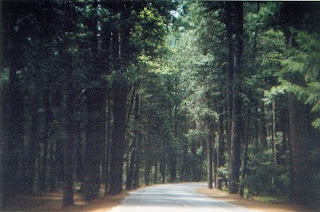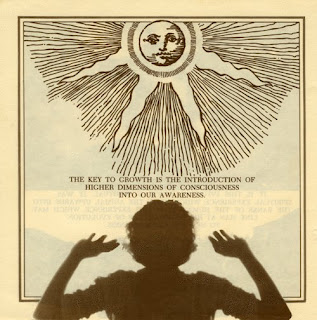
Once a week, I receive a message from a friend, or a friend of a friend, asking me questions about my vegan diet, typically it starts with… ‘I have been thinking about going vegetarian, but not sure where to begin, could you please send me some information..’ and although this message makes me gleam, and I take heaps of pride in my response, I feel as though I am always repeating the same message over and over again, so I have decided to write this blog post in order to respond all at once, and next time I receive that message, I can just forward this entry (feel free to also send it to friends).
Alrighty, I will begin with the basics. Vegetarianism is the practice of following a plant-based diet with the inclusion of dairy products and/or eggs.
However, veganism (which I am) encompasses a diet free from all animal-products. I do, however, eat honey (and that is a whole different point-which I will happily answer if you are wondering why I choose to support honey).
I also attempt to eat a mostly raw diet, which makes up 50% of my diet. I eat uncooked fruits, veggies—or just cooked slightly.
Buddhist vegetarians do not eat onion or garlic & macrobiotic diets consist mostly of whole grains and beans (which I actually do not recommend).
A compliment that I receive quite frequently is that ‘I look healthy for a vegan.’ Of course I look healthy is my response. I have lower levels of cholesterol and lower blood pressure. My chances of heart disease, diabetes, osteoporosis, and Alzheimer’s disease (which is mad cow disease in humans) are much lower than most meat eaters.
With that said, If I am not fully aware of the foods I consume than none of the above would be true. It is easy and very possible to be an unhealthy vegetarian/vegan, or what I like to call ‘a junk food vegetarian.’
Which includes vegetarians that eat pasta, bread, chips & fries as meals. This makes me incredibly sad. Where is the protein? Where are the vegetables? Or the healthy fats? Of course, you aren’t going to look well OR feel well. Many people tell me, I tried to go vegetarian once, but I was always hungry, low on energy, and never felt well. And then when I ask what they ate, they tell me they just cut out all the meat, but what about substitutions? What about supplements (if you are not sure you are getting it from food)? –which leads to b12—you must take a supplement for this vitamin, its most difficult to achieve adequate amounts from a plant-based diet. And food combination is very important:
Food combinations in protein sources:
(There are 23 different types of amino acids that our bodies need- in order to do everything from forming skin, organs, blood cells, and the immune system, to creating hormone neurotransmitters.)
Many protein sources are incomplete, but with the correct food combination can be complete, however, there are some food sources that are complete (all on their own)
And these include:
-Quinoa: some consider it a grain, however it is actually a seed. But I eat quinoa in substitution for rice. It is easier to digest (gluten-free) and has a nutty flavor. I actually prefer to cook it than let it cool and eat it at room temperature.
-Lupin, soy, hempseed, chia seed, amaranth, & buckwheat are all complete.
I add chia seed to almost everything I eat. It’s so small, and in my opinion, does not have much taste, that I do not even notice it is there. And amaranth is sooo good with fresh fruit salad.
-Avocado: I eat avocado almost everyday. Somedays, more than once. But it is high in fat, so if I eat more than half an avo in a day, then I make sure to cut back on all my other fat sources throughout the day. Avocado is soooo good for digestion.
-Miso: another good for digestion food—fermented foods all are. One day, I will eat a diet which is mostly fermented, once I am more settled and have the time to make all my own miso, kombucha, kimchi, and so on.
-Coconut: I WISH I had a coconut tree. I could live off coconut milk.
-Beetroot: my favorite as a juice AND grated up in salads. Heaps of antioxidants & makes your liver HAPPY.
Food Combos: (to create complete protein)
grains with legumes i.e. almond butter & grainy bread, rice & beans, tofu & rice/pasta
grains with nuts & seeds i.e. grainy bread w/sesame seeds, rice w/sesame seeds
legumes with nuts & seeds i.e. hummus (chickpeas & tahini) or trail mix (nuts w/seeds)
If you eat dairy and egg products than you are receiving complete proteins.
However, I would highly recommend cutting out dairy and only eating free-range eggs if you must.—you can message me for more information on going vegan.
Other worries as a vegetarian are: iron, calcium, fatty acids, and vitamin D (but no need to worry, all can be found in foods--i have listed some below).
Iron—black beans, lentils, oatmeal, raisins, black-eyed peas, soybeans, chick peas, tomato juice, whole-wheat breads, cashews, hempseed, kidney beans, tempeh, molasses and thyme.
Calcium—leafy greens, ie. collard greens, kale, spinach, bok choy, etc., tempeh and tofu (soy).
Fatty Acids—soy, walnuts, pumpkin seeds, hempseed, kiwi, and my favorites: AVOCADO, flaxseed (oil), chia seeds, algae (seaweed)—and spirulina.
Vitamin D- THE SUN!!! soy milk & mushrooms.
I do not support ‘Gardenburger’ or any of those ‘fake meats’ --I did when I first became a vegetarian, but once I started reading labels and learned that there were more added (unknown) ingredient than actual veggies, I stopped and started making my own veggie burgers out of beans, seeds and vegetables. I make heaps all at once, and then freeze them for easy eats. Also, it is not necessary, but I try to avoid gluten as much as possible and eat Ezekiel breads and spelt pasta, and QUINOA. Yum.
Overall, in my (self-educated health knowledge) I highly recommend (common sense) drinking lots of water and EXERCISE. Spend at least twenty minutes in the sun a day, and smile often. Try your best to eat organic and raw as often as possible. Also, eat LOCAL & if possible, grow all your own fruits & veggies (at least your own herbs).
Also, include these (ancient)SUPERFOODS into your diet (even if you aren’t veggie)!
-Blue green algae/spirulina/wheat grass/kelp/dulse/alfalfa
-Acai & gogi
-Chia seeds
-Maca/raw cacao/dark chocolate
-Bee pollen
-Green tea
-Quinoa, rice bran
-Ginger, turmeric, cinnamon, cayenne & aloe
Well, I hope this information above helps, and although I might have sound annoyed in wanting to create this blog, I truly do not mind the questions. I will happily answer each and every one of them. Health is very important to me, not only for myself but also for others. Also, I am no one trained/educated in any of the above information. It is all very subjective & my own opinion, so if you do not agree with any of it, that is fine as well. =)

















